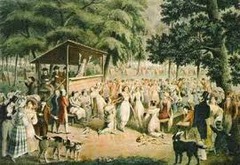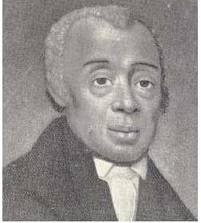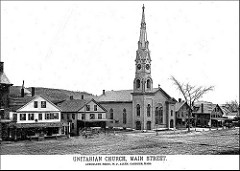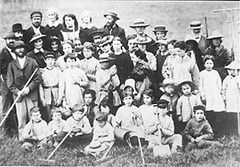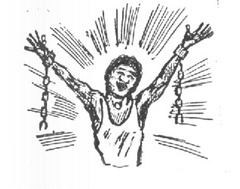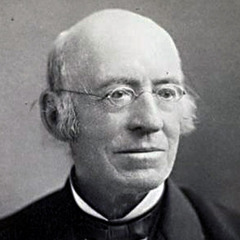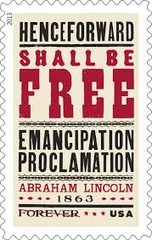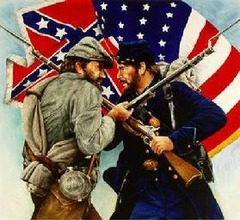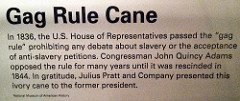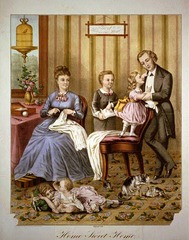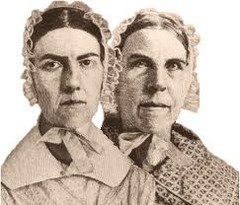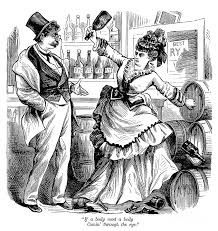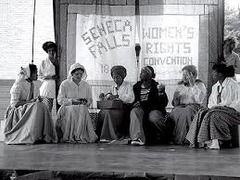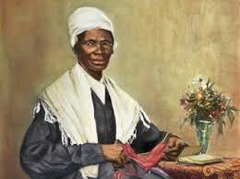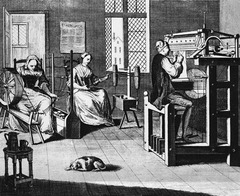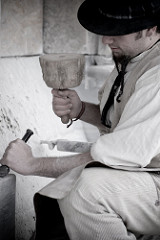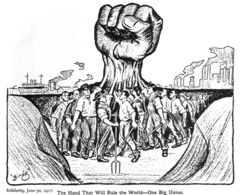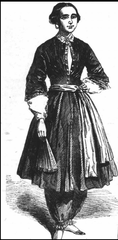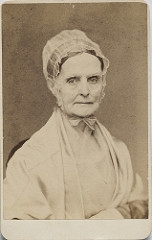Second Great Awakening
A second religious fervor that swept the nation. It converted more than the first. It also had an effect on moral movements such as prison reform, the temperance movement, and moral reasoning against slavery.
revival
an emotional religious gathering that could last for several days
Charles Grandison Finney
An important preacher in the revivalist movement.
Revivalist movement
movement that preached that each person had the responsibility to find salvation. It also stressed that people could change themselves and society.
Richard Allen
started the African Methodist Episcopal Church that became a political, cultural, and social center for many African Americans.
Ralph Waldo Emerson
New England writer and philosopher who led a group practicing transcendentalism
transcendentalism
belief that people could find truth in nature and within themselves. They believed in the dignity of the individual. They fought for social changes. They contributed to the literary movement that stressed freedom and self-reliance.the empirical and material
Henry David Thoreau
author of Walden practiced self-reliance(He lived alone for 2 years.)
civil disobedience
belief that people should protest and not obey laws they considered unjust
Unitarian movement
a spiritual movement that stressed reason, not emotion.
utopian communities
experimental community that tried to create a "perfect" living environment of harmony and self-sufficiency. (None were successful.)
Dorothea Dix
Rights activist on behalf of mentally ill patients - created first wave of US mental asylums
abolition
Movement to end slavery
William Lloyd Garrison
United States abolitionist who published an anti-slavery journal "The Liberator "(1805-1879)
emancipation
the freeing of slaves
David Walker
a free black who moved from the South to the North and urged African Americans to fight for their freedom.
Frederick Douglass
an escaped slave that became a leader in the abolitionist cause. - wrote and spoke about achieving emancipation through nonviolence. - founded The North Star, an anti-slavery newspaper.
Nat Turner
Virginian slave that led a violent slave rebellion
gag rule
rule that legislators could limit or ban debate on any issue
cult of domesticity
social customs that required women to restrict themselves to caring for the house
Sarah and Angelina Grimke
leaders in the abolitionist movement
temperance movement
movement to ban the drinking of alcohol
Elizabeth Cady Stanton
A prominent advocate of women's rights, she organized the 1848 Seneca Falls Convention with Lucretia Mott
Seneca Falls Convention
Women's rights convention in NY attended by more than 300 men and women. They called for laws that guaranteed equal rights to women like suffrage, the right to vote "Declaration of Sentiments and Resolution"
Sojourner Truth
former slave that became an abolitionist and women's rights activist
cottage industry
system in which manufacturers provided the materials for goods to be manufactured home.
artisan-made
goods that a family could not make for itself like furniture and tools
master
a skilled artisan who owned a business and employed others
journeyman
skilled worker employed by a master
apprentice
worker learning a craft or a trade under the supervision of a master
strike
a work stoppage in order to force an employer to respond to demands
National Trades' Union
In 1834, the unions that joined together to increase their power
amelia bloomer
An American women's rights and temperance advocate. She presented her views in her own monthly paper, The Lily, which she began publishing in 1849. When Amelia was 22, she married a lawyer by the name of Dexter Bloomer. One of the major causes promoted by Amelia was a change in dress standards for women so that they would be less restrictive.
lucretia mott
A Quaker who attended an anti-slavery convention in 1840 and her party of women was not recognized. She and Stanton called the first women's right convention in New York in 1848
